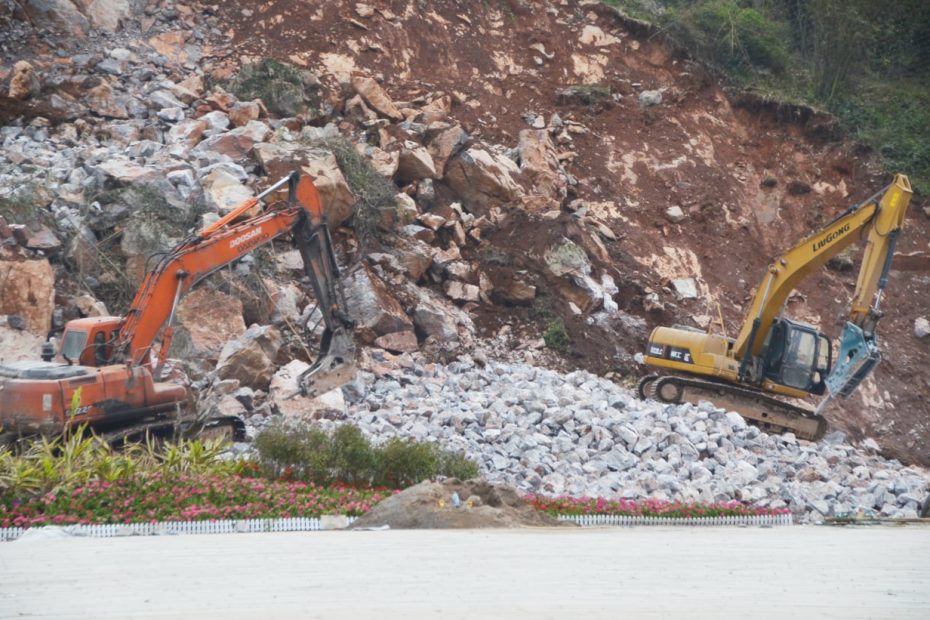An encounter in the project INVERSION – Gropius-Bau Berlin
Joachim Borner __ 26.6.2021
When one hears of Latour in the social sciences, one thinks of actor-network theory. What it emphasizes is that it sees social, i.e. communal, action, which involves a goal (future) and coordination, not only as a relationship between actors, but also includes the non-human factors – not as objects but as quasi-actors (actants).
But this philosophical-methodological approach shall not interest us today.
In Latour’s last publications (Struggle for Gaia, Terrestrial Manifesto, presentation in the project INVERSION in Berlin 2020) he tells about the present time. Yes, he tells the story of global changes in the last 50-60 years from a global self-understanding. And how this self-image itself changed, how it was and is communicated and how, under this public din, inklings and certainties spread that are different. Words, images, familiar descriptions are missing in the vernacular. Probably also because a metamorphosis begins to emerge for which there are no terms yet. Diffuse in science – with Anthropocene/Capitalocene, Noossphere or Noocene – distopic in science fictions – there are only deceptive feelings, social lethargies and panic. “The ground disappears from under our feet” is how Latour names it.
Let’s look at his narrative: He tells what everyone knows: globalization, the realization of climate change, deregulation, migrations. And then comes the first interpretation … that is the narrative on power and the disempowerment of politics by means of deregulation; and the second interpretation: change of global_local -cultural practices of action, the terrestrial moment, that is, the former backdrop of nature and territory, (biosphere, climate weather, oceans and water, development paradigm, etc.) that becomes the subject. This subject “suddenly” plays along, unasked and always unannounced. It is actant. And with it also radically(!) certainties change: conflicting, controversial communities/societies or competing (but communicating) worldviews split, break off competitions, become two contactless worlds. “Suddenly it looks as if a third attractor has appeared everywhere at the same time and has diverted, absorbed and soaked up all conflict issues, so that any orientation according to tradition has become impossible.”
This is Latour’s “method of analysis!” He describes an epochal change with metaphors, with words and images that seem to come from other worlds.
The globe is not big enough for this kind of globalization – all that worries us is the uncanny experience of the earth reacting to our actions; modernity as a history of progress is over – a melancholic experience that asks what the survival of human culture will depend on and to which there is no answer, not even that of a “cold” society or that of the end of history. (Airplane that cannot land)
In any case, the “Earth” itself becomes a political actor; man is no longer the center of attention, is no longer the only agent, becomes himself an object. All questions of the future will be geopolitical (global) questions. Terrestrial questions/Terrestrial attractor.
On his tableau, Latour identifies two distinct political actors that remain within the old, anthropological order – and offer “ways out.” The neo-hyper-modernists, who accelerate everything to the global and are ready to leave the earth or with cognitive-artificial armament the humanity in case of emergency (minus-globalization) – and the reactionaries, who want to recover with the construction of the local (which emerged only as a counterpart to the global), i.e. with tradition, certainty, (ethnic) identity… a local, which never existed.
These two are moving away from each other … complemented by the abandonment of the political task, the production of a commonly habitable earth. The entire politics of the elites crystallizes as climate denial – it is a political movement of elites dedicated to the unreal, to stalling for time to hold their own privileges.
The terrestrial attractor now dissolves the traditional distinction of individual-ecosystem; nature-culture. The earth is not only a planet, it is a complex organism that can only be understood as an interplay of all the actors inhabiting it and their interdependencies (Lovelook).
Two tasks, overpowering almost, are at hand: 1. learning to see and trace what the common earth is and how its organism (Gaia) is rapidly changing. 2. what must be in order to survive (materialize overlap of different interests)? In the process, home becomes a new term for: Learning to land.
